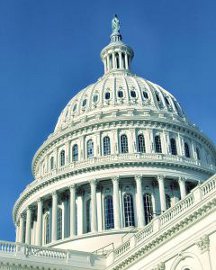Why the Rest Hates the West: Understanding the Growing Animosity of the Rest of the World Toward America
 As an American who grew up believing that the United States of America was the beacon of freedom in the world and that people all over the world envied our democracy and liberty, I could never understand why other countries would want to attack us. As a teenager, it was the Russkies and Chicoms that threatened us with their totalitarian aspirations. Today the threat comes primarily from terrorists, but hatred for our country seems to seethe from every corner of the globe. For many Americans, including me, this seems inconceivable. What motivated people all around the world to celebrate when the Twin Towers came down on 9/11? Why did so many dance in the streets and celebrate the worst attack on American soil in half a century?
As an American who grew up believing that the United States of America was the beacon of freedom in the world and that people all over the world envied our democracy and liberty, I could never understand why other countries would want to attack us. As a teenager, it was the Russkies and Chicoms that threatened us with their totalitarian aspirations. Today the threat comes primarily from terrorists, but hatred for our country seems to seethe from every corner of the globe. For many Americans, including me, this seems inconceivable. What motivated people all around the world to celebrate when the Twin Towers came down on 9/11? Why did so many dance in the streets and celebrate the worst attack on American soil in half a century?
In his book, Why the Rest Hates the West: Understanding the Roots of Global Rage (IVP, 2004), Meic Pearse tries to help Americans understand the “roots of global rage” against Western democracy. In the introduction he views American tolerance, which many of us consider to be one of the cornerstones of our liberties, from another side. In this passage he is not referring to tolerance as moral relativism, but tolerance as the principles of freedom of religion, speech, press, etc.
The currency of the term tolerance has recently become badly debased. Where it used to mean the respecting of real, hard differences, it has come to mean instead a dogmatic abdication of truth-claims and a moralistic adherence to moral relativism—departure from either of which is stigmatized as intolerance. (p. 12)
 Read
Read 
Discussion